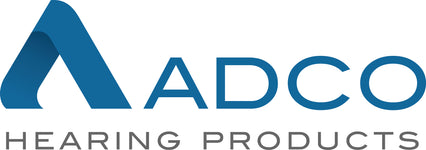The Importance Of Regularly Cleaning Your Hearing Aid
Like many people, hearing aid users are often busy with school, work or familial concerns, and may have little time for hearing aid cleaning. However, below are some reasons why doing so is critical to your long-term auditory health.
What Happens if You Don’t Regularly Clean It?
If you fail to regularly clean your hearing aid, it can accumulate wax and moisture which can in turn lead to ear infections. Additionally, it may compromise your ability to hear due to wax clogging and the device will experience more wear than usual. Given the high cost of these devices, you should want them to last as long as possible, and by periodically cleaning and maintaining them, they will.
Incorrect Cleaning Techniques
There is a right and wrong way to cleanse your hearing aid. Incorrect cleaning techniques include:
- Using household cleaners or chemicals on the devices
- Exposing the hearing device to moisture can damage its sensitive electronics
- Cleaning the device with its opening face up, because it can cause internal components to fall out
- Sticking anything inside the hearing aid, like safety pins or paper clips. Doing this can damage or pierce a crucial internal component
Any of the above actions can lead to a mechanical breakdown that will result in expensive repairs. If you have an aging device that is no longer under warranty, the repair cost could even be higher, and you might not have a spare hearing aid while you wait for the primary one to be fixed.
Correct Cleaning Techniques
Use the following techniques to properly manage and cleanse your hearing aid without damaging it:
- Always remove the hearing aid prior to using makeup, hair gels or hair sprays
- It is best to cleanse the hearing aid prior to going to bed, that way they can air out overnight
- Hearing aid users who reside within assisted living communities might need the help of staff members to clean their devices
- Use a hearing aid dehumidifier to keep the device moisture free, particularly if you live in humid environments, perspire frequently or spend time outdoors
In addition to the above recommendations, you should see your audiologist every six months so they can inspect your hearing aid for issues and provide maintenance if needed. They often use specialized equipment and can perform more detailed cleaning.
Additional Tips
The easiest part of the hearing aid to clean is the earbud, which has the most buildup exposure. One way to remind yourself to clean it after a busy day is to place a cleaning cloth near your bedside or the place where you store the hearing aid before going to bed. Microfiber cloth is best.
Some users purchase a hearing aid kit, which provides a number of advantages. These kits usually include a brush and wax pick which make cleaning easier, as you will be able to remove greater earwax from the receiver, earbud and microphone. If a buildup occurs in this area it will compromise your sound quality and ability to hear, so an official cleaning kit will help a lot.